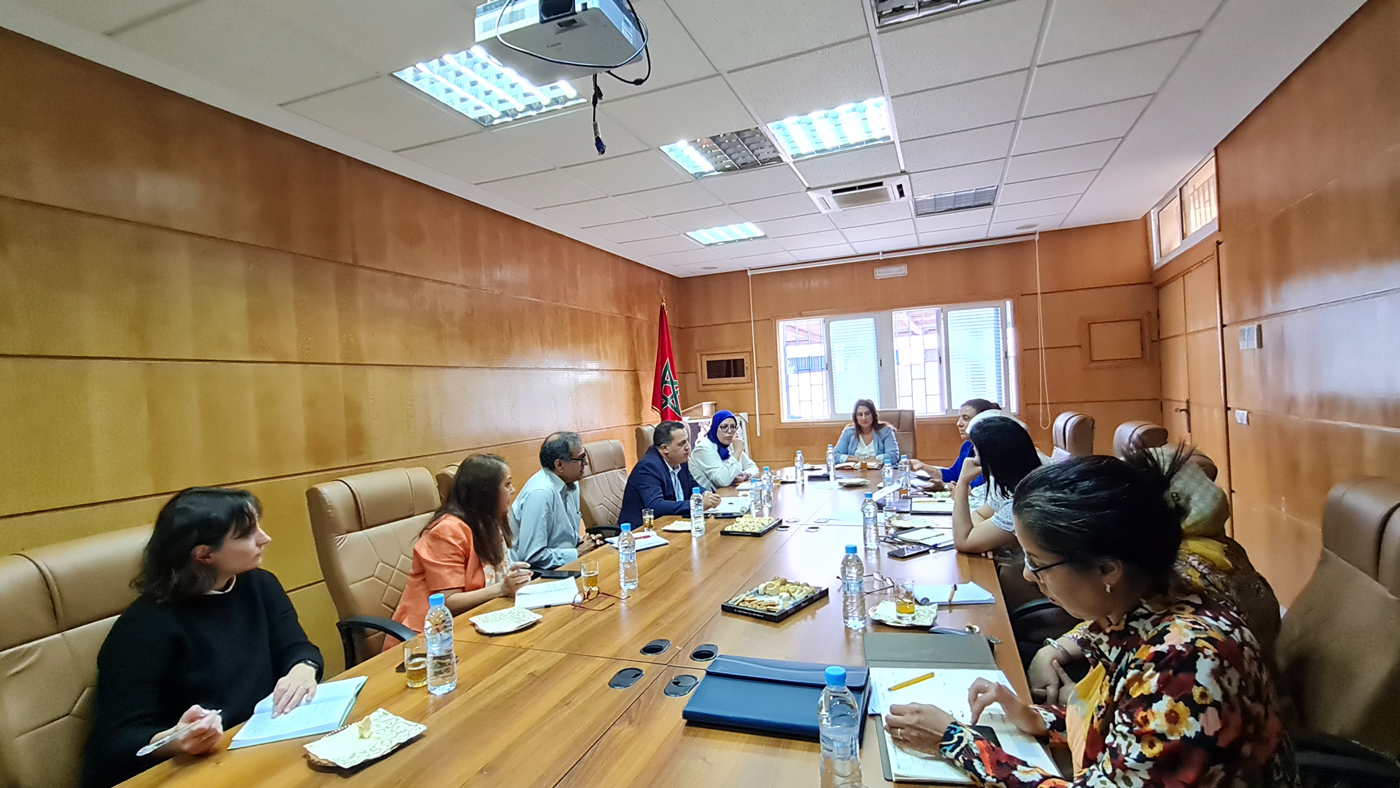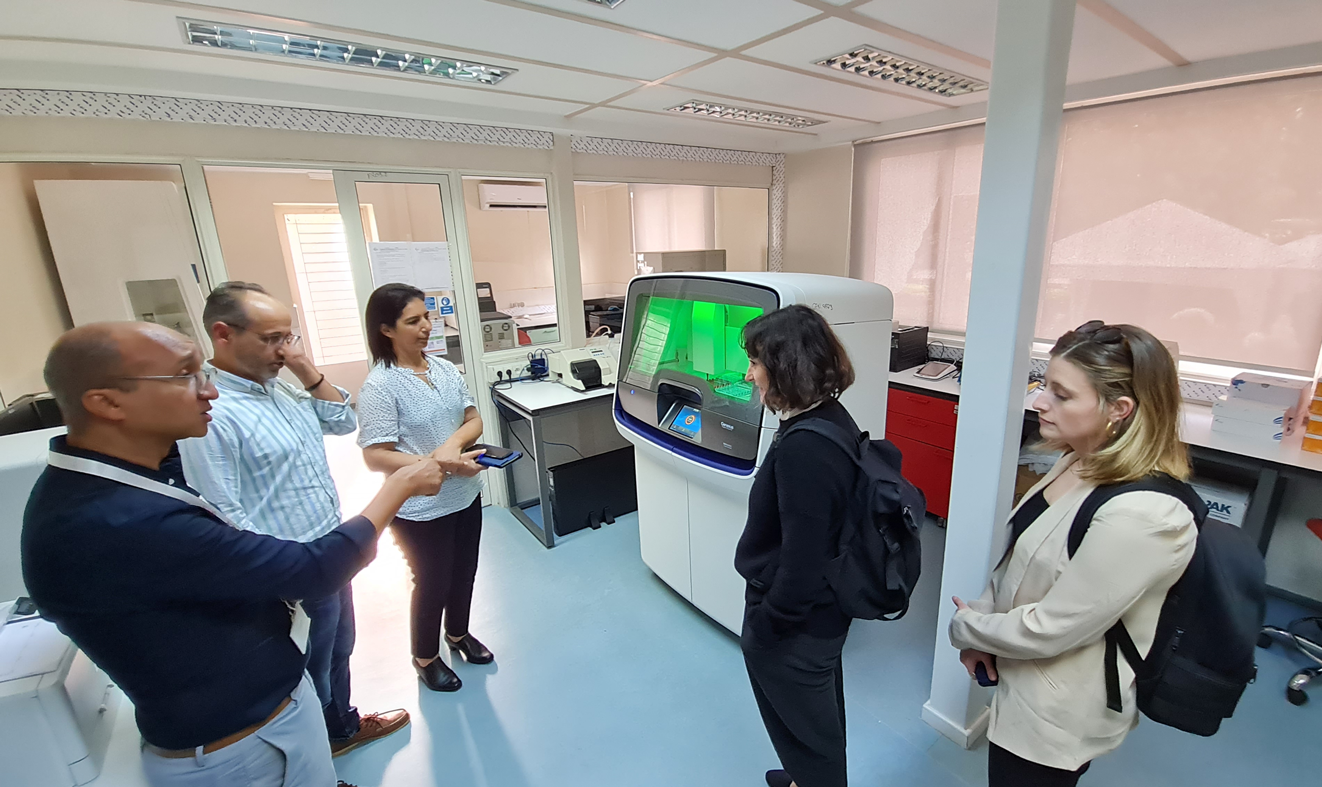 Mission members attending a meeting with Rabat Regional Health Directorate Cairo, 5 December 2022 – The WHO Regional Office for the Eastern Mediterranean conducted a technical mission to Morocco to support the country to operationalize the integrated surveillance framework for influenza and other respiratory viruses of epidemic and pandemic potential.
Mission members attending a meeting with Rabat Regional Health Directorate Cairo, 5 December 2022 – The WHO Regional Office for the Eastern Mediterranean conducted a technical mission to Morocco to support the country to operationalize the integrated surveillance framework for influenza and other respiratory viruses of epidemic and pandemic potential.
The mission was conducted jointly with laboratory and epidemiology staff from the WHO country office in Morocco, WHO headquarters and the United States Centers for Disease Control and Prevention (CDC).
Mission members met with senior government officials and technical staff from the Ministry of Health and Social Protection, including the Director General of the Department of Epidemiology at the Ministry, and officials from the National Institute of Hygiene, the National Influenza Centre, Rabat Health Regional Directorate and Rabat University Hospital to identify challenges and opportunities to improve the influenza surveillance system in the country.
Rabat University Hospital is a major sentinel site for severe acute respiratory infection (SARI). Mission members also met officials and technical staff in Tangier region and visited the sentinel influenza SARI site at Tangier Regional Hospital.
Through meetings and site visits, mission members reviewed Morocco’s respiratory disease surveillance system, including its virological and epidemiologic processes and procedures for case detection, recording and data sharing for influenza and other respiratory viruses of epidemic and pandemic potential.
 Mission members visit a laboratory at the National Institute of Hygiene in Rabat
Mission members visit a laboratory at the National Institute of Hygiene in Rabat
Logistical challenges currently prevent Morocco from integrating surveillance for multiple respiratory pathogens, such as influenza, severe acute respiratory syndrome coronavirus 2 (SARS-CoV-2), respiratory syncytial viruses (RSV) and other high-risk pathogens of epidemic and pandemic potential, as additional materials and technical support are needed to facilitate implementation of the Ministry’s integrated surveillance plan.
Through the Pandemic Influenza Preparedness (PIP) Framework, the WHO country office in Morocco has already supported the procurement of testing kits for the regional laboratories for influenza, SARS-CoV-2 and RSV, and laboratory training will be conducted soon to support implementation of the integrated surveillance plan.
Mission members stressed the need to revitalize the influenza-like illnesses (ILI) and SARI surveillance system under the new integrated plan for monitoring influenza and SARS-CoV-2. Investment in staff training at influenza sentinel sites should also continue, particularly in surveillance, detection, case management, cluster investigation, risk assessment and data-driven decision-making.


